Cohabitation Agreement
-
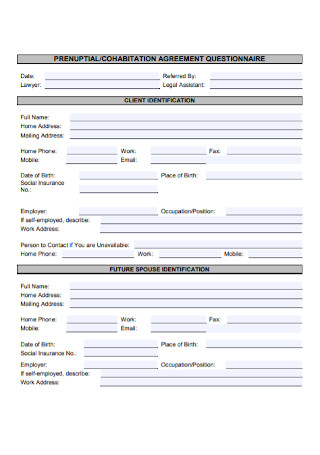
Cohabitation Agreement Questionnaire Template
download now -
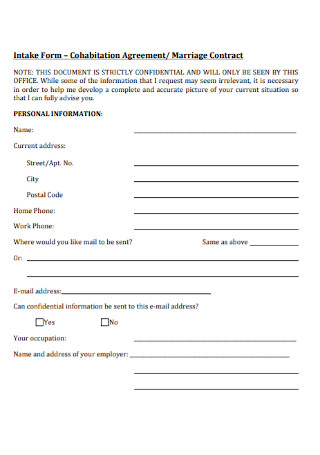
Cohabitation Marriage Contract Agreement
download now -
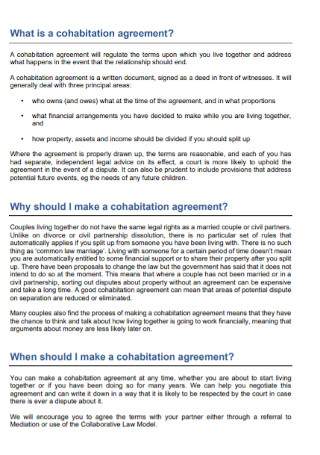
Basic Cohabitation Agreement
download now -
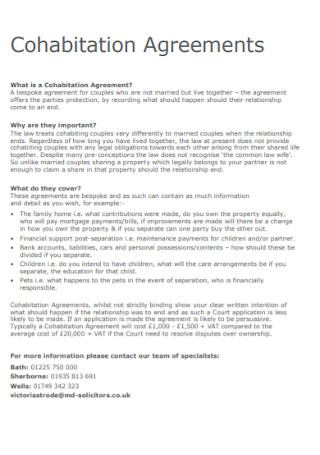
Formal Cohabitation Agreements Template
download now -
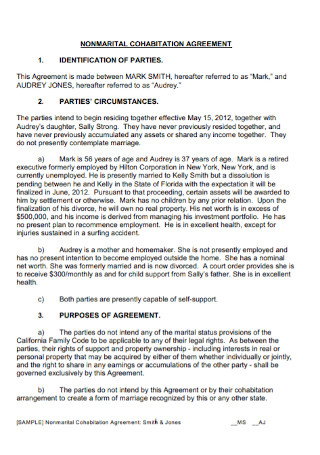
Nonmarital Cohabitation Agreement
download now -
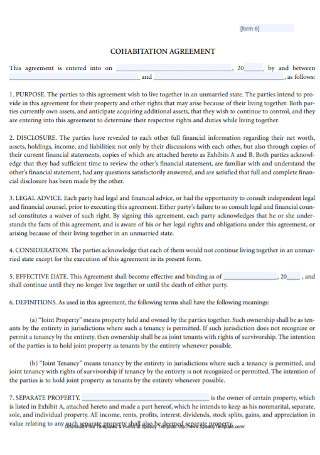
Simple Cohabitation Agreements Templates
download now -
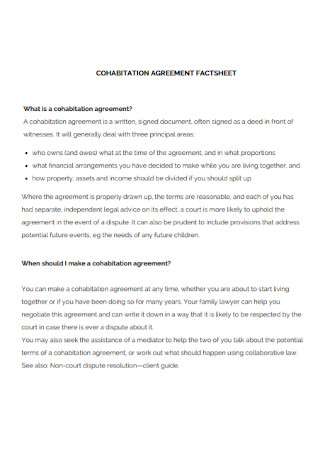
Cohabitation Agreement Worksheet Template
download now -
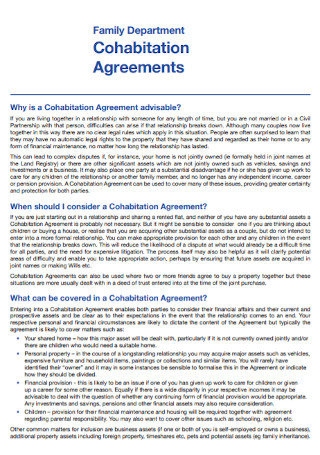
Family Department Cohabitation Agreement
download now -
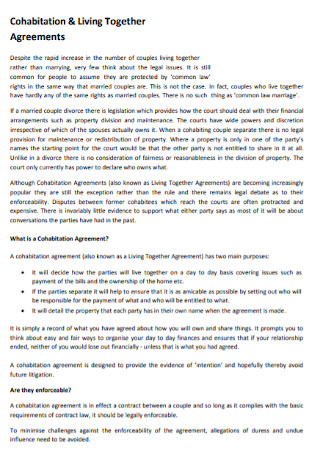
Cohabitation and Living Together Agreement
download now -
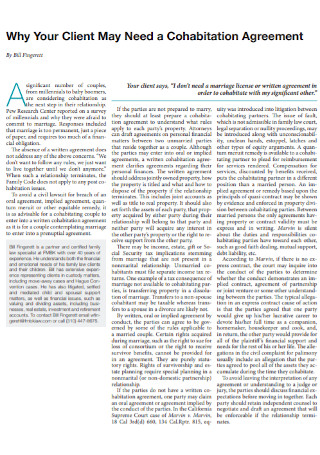
Client Cohabitation Agreement
download now -
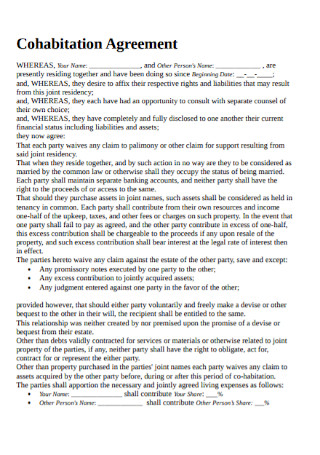
Standard Cohabitation Agreement
download now -
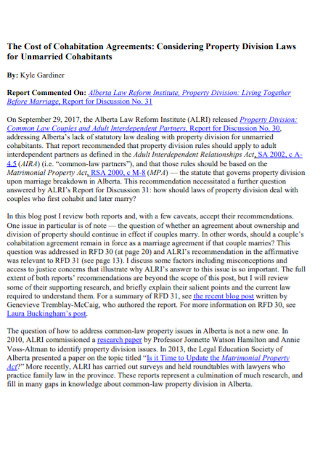
Cost of Cohabitation Agreement
download now -
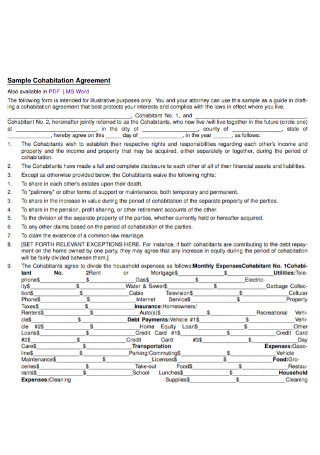
Sample Cohabitation Agreement Example
download now -
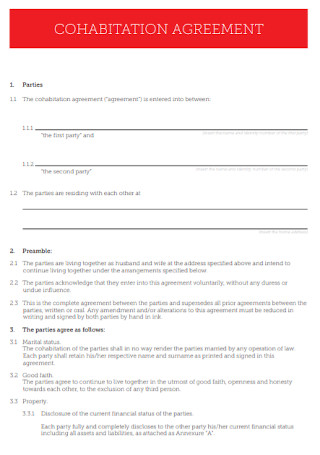
Cohabitation Legal Agreement
download now -
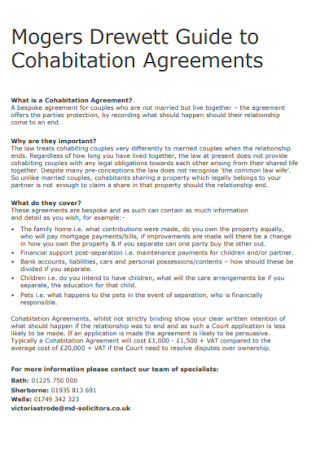
Cohabitation Agreement Format
download now -
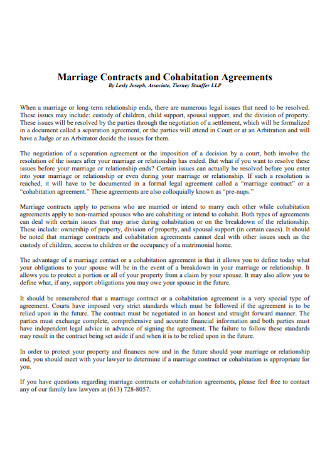
Marriage Contracts and Cohabitation Agreements
download now -

Cohabitation Marriage Agreement
download now -
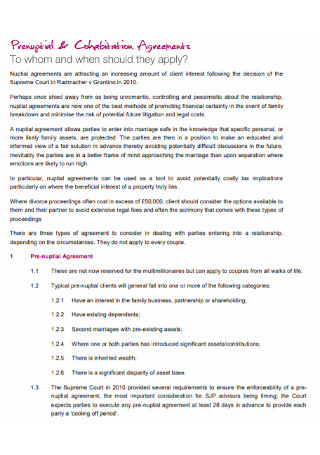
Prenuptial and Cohabitation Agreement
download now -
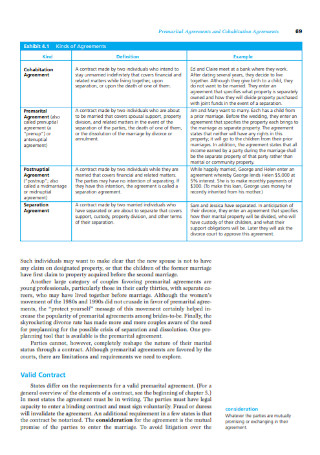
Premarital Agreements and Cohabitation Agreements
download now -
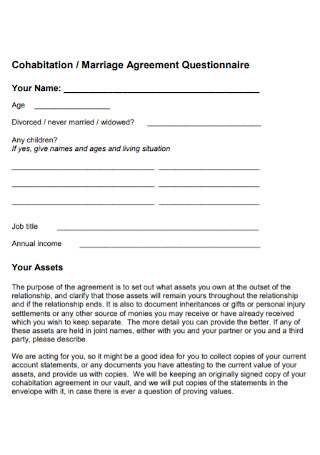
Sample Cohabitation Marriage Agreement Questionnaire
download now -
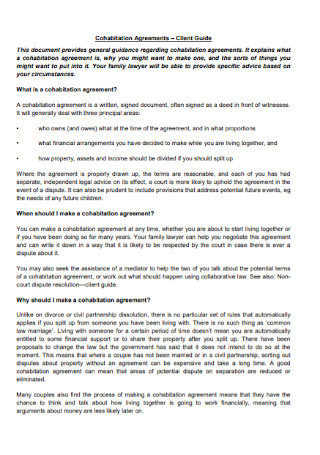
Printable Cohabitation Agreements
download now -
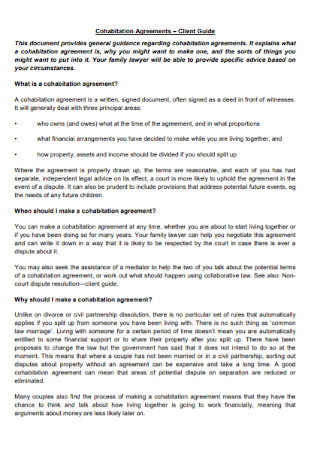
Professional Cohabitation Agreements
download now -
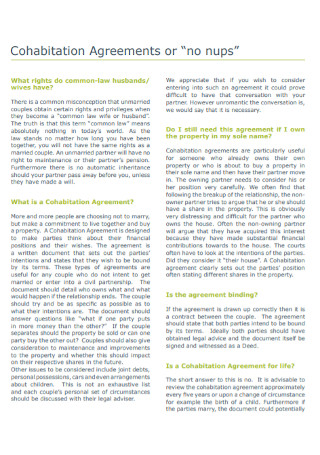
Cohabitation Law Agreements
download now -
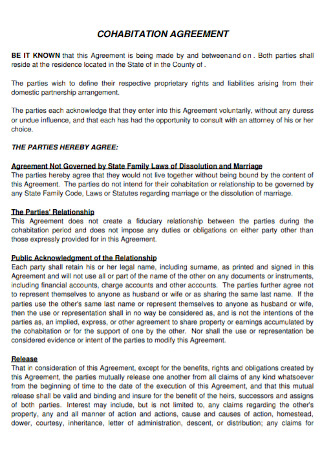
Basic Cohabitation Agreement Example
download now -
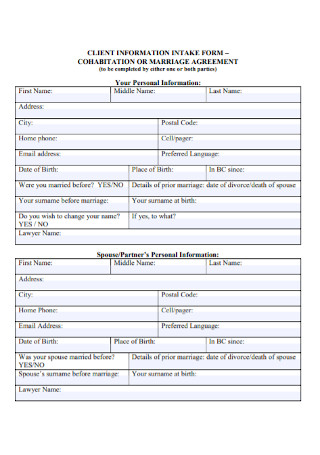
Cohabitation Client Information Agreement Form
download now -
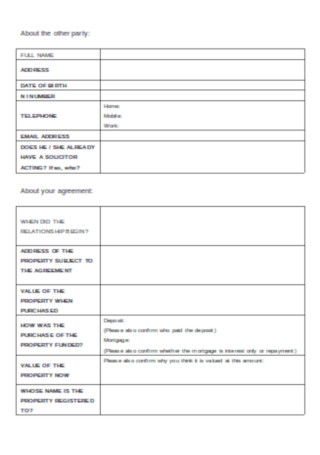
Cohabitation Agreement Instruction Booklet Template
download now
What Do the Statistics Say About Cohabitation?
If you are from a traditional family, then you would undoubtedly be surprised to find out that people today prefer cohabitation over marriage. Aside from it being more practical, it is much easier to nullify a cohabitation agreement versus a marriage agreement. Other people also prefer cohabitation over marriage for personal or religious reasons. According to the census, the percentage of young adults around 18 to 24 years old has increased from 0.1% in the 60s to 9% in 2018. In contrast, the rate of married spouses living together has steadily decreased from 39.2% in the 60s to a whopping 7.3% in 2018.
Cohabitation is when two people who are not married live together in one roof and share financial expenses. This couple has to create a cohabitation or “living together” agreement to manage their financial responsibilities and prepare for unfortunate events. Since you live together, most likely, you will end up sharing the bills, expenses, and purchases. Domestic disputes usually spring out of financial issues. Deciding who spends what, who buys what, etc., can cause couples to split. Thus, to avoid such circumstances and safeguard yourself if you do split up, it would be better to create a cohabitation agreement. It is similar to a prenuptial agreement in the sense that it deals with assets and liabilities. Breaking up is not something that any couple would want to do. It is certainly not the stage that we’d all want to be someday. But preparing for it would save you from the hassle of emotional and financial stress.
What Do You Include in a Cohabitation Agreement?
A cohabitation agreement is very much similar to a prenup in that it talks about assets and properties. However, you can also indicate the responsibilities of each partner within a relationship. Therefore, both the prenuptial and cohabitation agreements can include the same provisions. But bear in mind that the court would treat a cohabitation agreement as a legal contract.
You can be specific about the agreement or general about it. We all agree that we’d rather talk about movies and date nights when together with our partners. However, life can be unpredictable. But, there are still some things that you cannot include in a cohabitation agreement. For example, these days, it’s common for unmarried couples to have kids. Deciding who gets to take custody of a kid or provide for child support is something that only the court has the power over. You can try to put it in the agreement, but the court still has the final say about child support or child custody. You also need to check your state laws on whether it’s okay to have oral agreements or you are required to put it in writing.
Cohabitation Vs. Relationship Vs. Prenup
Some people confuse cohabitation agreements with relationship agreements and prenups. Though they do share some similarities, they are different in some aspects. Relationship agreements have sprung out of cohabitation agreements. A cohabitation agreement deals with the technicalities of a relationship, responsibilities, and custody in case of a breakup. Relationship agreement, on the other hand, deals with the more romantic side of a relationship. You can put in writing how you would like the relationship to run. For example, you can indicate that you would like your partner to take you out for dinner every Friday, or you would suggest that both of you must spend at least one weeknight together. A prenup is an agreement that both parties sign before a wedding. A cohabitation agreement can include the same clauses or provisions as a prenup and may evolve into one once married or engaged. Unlike the other two, though, a relationship agreement is not legally binding and, therefore, unenforceable.
Who Needs to Use a Cohabitation Agreement?
Moving together is a massive step for any couple out there. It’s one of those decisions that require a lot of thinking. Getting committed to married life can be an enormous issue for people. After all, getting tied down to the wrong person for the rest of your life can be a frightening situation. For traditional families, they prefer to get married before living together. Some prefer to test the waters first before getting married. Others prefer not to get married at all for personal reasons. And that’s why more and more couples nowadays prefer cohabitating.
Cohabitation agreements can be used by any unmarried couple who, for their reasons, don’t want to get married. Whether you don’t believe in religious norms, don’t like the idea of a wedding contract, or don’t believe in the concept of spending a lot to get married, you can use a cohabitation agreement to your advantage. Though it is not mandatory, merely cohabitating with your partner does not entirely guarantee ownership of your properties. Unlike marriage, where you are entitled to some of the assets upon divorce, cohabitation does not give you that kind of entitlement. And if you’d like to contest your ownership, it would turn out to be a fierce and quite expensive court battle. According to Blake Family Law, getting a cohabitation agreement is cheaper compared to court battles, which could cost thousands of dollars. The cost of drafting a cohabitation agreement ranges from $1000 to $1500 as long as there are no disputes among the two parties. So to save you the emotional and financial heartache, it would be best to prepare a cohabitation agreement ahead of time. But if you feel that a cohabitation agreement only generates distrust, then maybe it’s not for you. However, in buying property, you may need to ask yourselves questions about separation first. After all, the future is unpredictable, and anything can happen. Cohabitation agreements, at least, provide you with security. Not having one would be too risky for your future.
How to Draft a Cohabitation Agreement
The court will acknowledge any well-written contract. Since you are only cohabitating with your partner and are not legally married, it would be in your best interest to write a cohabitation agreement. That should help make a separation case a whole lot easier. It will serve as an emotional cushion if worse comes to worst. But how do you write a cohabitation agreement that will stand in court?
Step 1. List Down the Inclusions
The first thing you need to do before writing the contract would be to discuss with each other the kinds of things that you would like to include in the contract. List down all your assets, debts, properties, or responsibilities that you want to cover in the agreement. Full disclosure of the assets owned by the partners separately or jointly, is required. You may also need to present financial statements to support your claim. In line with that, indicate what kind of responsibilities each should take with regards to those assets or properties. How much should each allocate for the electricity bills? Who will take custody of the pets in the event of a breakup? You’d also need to discuss how to divide these properties upon separation. Be as detailed as possible.
Step 2. Consult a Lawyer
Whether you are writing your agreement or having a lawyer draft one for you, you need it to be legally binding. For that matter, you need a lawyer’s consultation to check if every provision stated is within the boundaries of the law. You will also need a lawyer’s perspective to check if there are additional provisions required in the agreement. A family lawyer would be able to help you out in this matter. It would also be best that both lawyers from each party are present to make sure both sides are well-represented.
Step 3. Gather Your Witnesses
For an agreement to be considered valid, there have to be witnesses on the days of the document-signing. Each partner has to sign on different days. That aside, one of them has to be absent on the signing of the other. Not only do they need to witness you signing the document, but they also need to sign and date the agreement with you. Witnesses need to be present for your agreement to stand in court.
Though it may not be easy to draft a cohabitation agreement, if you would like to protect your assets or properties, then a contract would be in your best interest. Remember that there are also things that you should not include in a cohabitation agreement. An example would be meretricious provisions or provisions that are frivolous by nature, such as sexual contact with your partner. The court will nullify such provisions, and the entire contract might crumble. It’s not the best topic that you can discuss upon moving in together, but it gives you a dose of realism that you might break up and would help you deal with the emotional damage. However, this should not spell the end of your relationship. As the saying goes, “The couples that are meant to be are the ones who go through everything that is meant to tear them apart and come out even stronger.”
